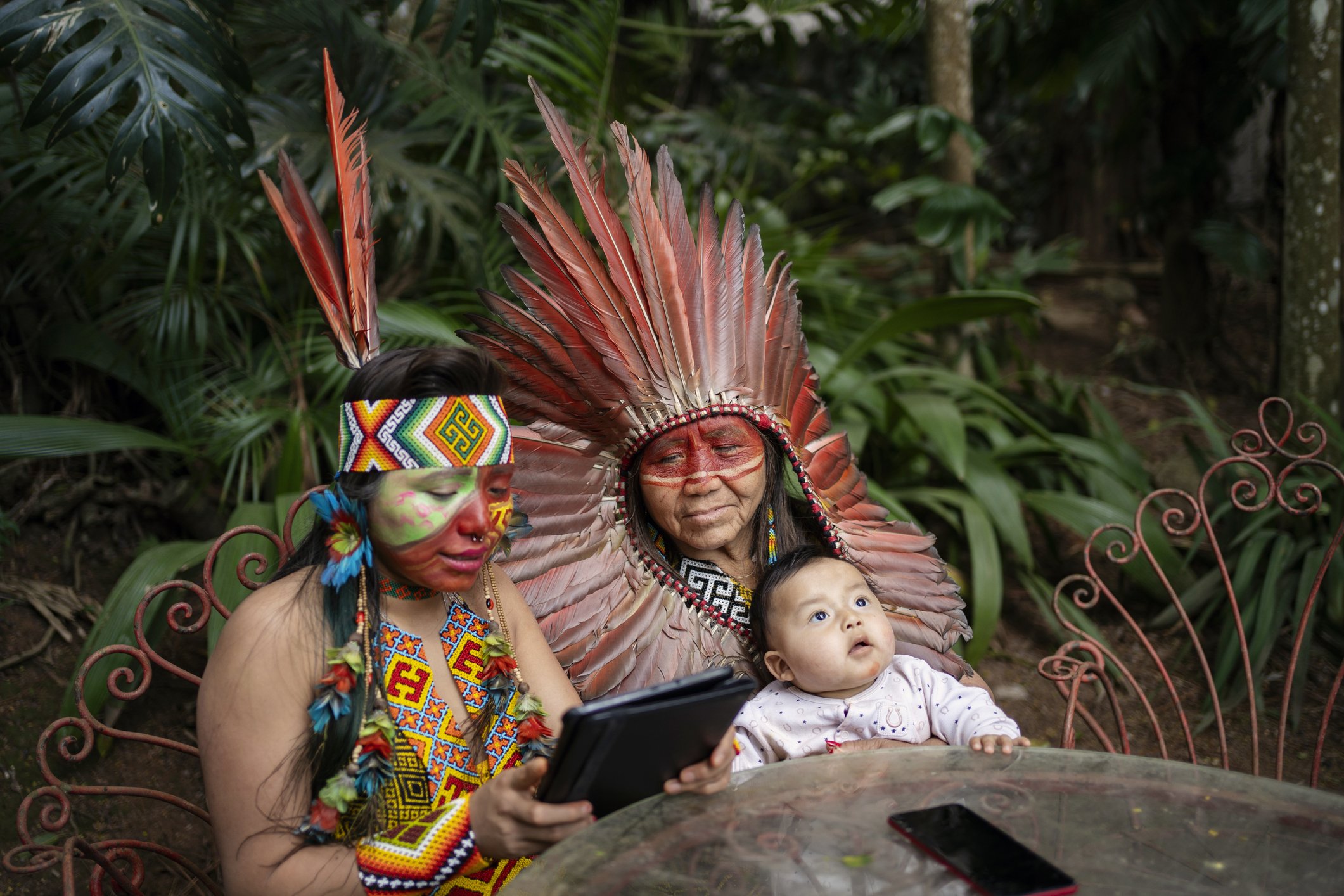
© Annie Griffiths/Ripple Effect Image
Secure Storytelling
Storytelling is among the oldest forms of communication. It is the commonality “of all human beings, in all places, in all times.” Histories, mythologies, and oracles have been passed down through the ages, pain and suffering has been assuaged over millennia, and tales of love and hope have uplifted and transformed the human spirit.
Today, the tradition of storytelling is more necessary than ever. Not only do we rely on stories of natural wonder and social and environmental triumphs to feed our soul, but we rely on the personal experiences of those nestled in remote parts of the world to help us understand the state of our natural and social systems, the injustices left to be extinguished, and the role that each of us plays in ensuring that every person on this magnificent planet has access to a just society in a healthy, biodiverse realm.
While the world has a growing urgency to hear story, storytellers– especially indigenous and local community storytellers - face tremendous risk as they bear witness to and deliver supporting evidence of their journey, their truths, and the injustices and dangers they face while defending their lands. In the past ten years over 1700 storytellers, activists, and evidence bearers have died in advancement of indigenous and community led conservation. In 2022, environmental defenders were the most targeted group of human rights activists according to Front Line Defender’s research. Storytellers were arrested, detained, faced unjust legal action, their property was confiscated, and they were physically attacked. A total of 194 indigenous environmental defenders in 15 countries were murdered.
Doing More with less
Every time a storyteller comes forward to share their journey, the injustices they fight, the burden that their people and their lands are carrying, they take risks to their personal safety and potentially their lives. In order to honor their efforts, we have an obligation to make sure that their stories are have the best opportunity to drive change. LMJ achieves this multiplier effect in several ways:
helping storytellers become evidence bearers
working through partners making sure each story, piece of evidence, photo, or data point is leveraged multiple times to achieve change in how laws and policies are written, improve transparency in supply chains, change consumer behavior, and ensure bad actors are held accountable.
ADVANCING Security
Last Mile Justice works with its partners to deliver resources and share knowledge on security topics including:
Digital, communication, and general security trainings
Provide legal resources and fees for those being judicially harassed
Provide assistance for family members of imprisoned environmental defenders
Security training and protection, including consultation and capacity building, to ensure indigenous and community led story tellers, activists, and evidence bearers have the information they need to address personal and organizational security.
“Storytelling is the commonality of all human beings, in all places, in all times.”
Fostering Technology partnerships
Last Mile Justice works to bring technology partners together to advance the protection of indigenous and local community storytellers, activists, evidence bearers and our natural world by providing assistance such as:
Remote technologies for information gathering
Cyber security
Data Analysis/Analytics
Supply Chain security/transparency


